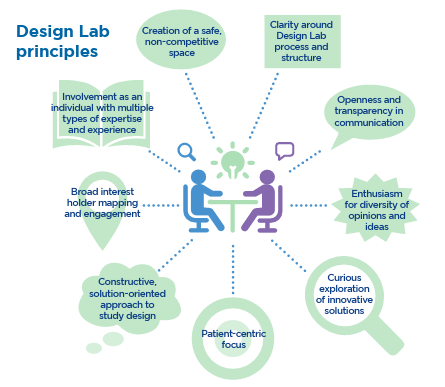How can we use health care data to generate reproducible scientific evidence or reliable clinical predictions? What innovative tools are available to allow us to efficiently work with our own data and in collaboration with others?
Join Tufts CTSI on May 6-8 at The Odyssey of OHDSI: Using Health Care Data for Research on the Tufts Health Sciences Campus in Boston to find out!
Observational Health Data Sciences and Informatics (OHDSI, pronounced Odyssey) is a rapidly expanding multi-sector research collaborative dedicated to uncovering the value of health data through large-scale analytics. The OHDSI community includes dozens of academic, corporate, and governmental institutions that use health data for research in the US and around the world. The community conducts methods research to identify best practices and builds state-of-the-art open source tools that implement those methods.
This exciting three-day workshop led by principal developers Marc Suchard, MD, PhD, University of California at Los Angeles (UCLA); Martijn Schuemie, PhD, and Jenna Reps, PhD, Janssen Research and Development, will teach you how to use OHDSI tools on data that conforms to the OHDSI community’s OMOP Common Data Model (CDM). In addition to implementing best practices, these tools are designed to simplify research processes by eliminating data wrangling and standardizing the parts of complex multistep processes that don’t require thoughtful consideration while informing many parts that do.
Day one will briefly cover OHDSI and how it supports research. Most of the day will cover how data are represented by vocabularies in the OMOP CDM and how to use the ATLAS toolset to define cohorts. Day two will give researchers, statisticians, and data analysts a hands-on introduction to using either of the two most mature OHDSI analytic tool sets. These will be taught in two tracks. The first will cover tools for population-level effect estimation. The second will cover tools for developing patient-level prediction models. Day three will guide participants through every step of conducting a study using the methods and tools covered in Day 2. Each session will build incrementally on the last so participants in later sessions will benefit most if they understand material covered in earlier sessions.
This will be a highly practical, hands-on training, perfect for any researcher, statistician, analyst, methodology specialists, or staff who uses health care data for research. Attendees should have basic R experience and understanding of observational data, as well as prior experience analyzing observational data such as electronic health records, before attending this session, and are encouraged to attend all three sessions.
Course Faculty
- Christian Reich, MD, PhD
VP Real World Analytics Solutions, IQVIA
- Jenna Reps, PhD
Senior Epidemiology Informaticist, Janssen research and Development
- Martijn Schuemie, PhD
Director, Epidemiology Analytics, Janssen Research and Development
- Anthony Sena
Associate Director of Epidemiology Analytics, Janssen Research and Development
- Marc Suchard, MD, PhD
Professor, Department of Biomathematics, David Geffen School of Medicine, University of California, Los Angeles
Learning Objectives
After completing this workshop series, you should be able to:
- Relate key OMOP CDM and vocabulary principles to PHDSI’s standardization process
- Define cohorts, conduct cohort studies, or develop patient-level prediction models using OHDSI tools
- Identify and access educational and other resources needed to become more fully proficient at using these tools in your research work.
After completing Day 1, you should be able to:
- Navigate OMOP CDM and vocabularies to define populations and outcomes.
- Discuss the structure of the OMOP CDM and how the OHDSI community uses it to support observational research.
After completing Day 2, you should be able to:
- Track 1:
- Demonstrate how OHDSI tools can be utilized to design and implement a comparative cohort study in observational healthcare data
- Track 2:
- Describe the patient-level prediction model process
- Develop models using the OHDSI Patient-Level Prediction framework
- Identify key elements to develop and validate prediction models using the OHDSI tools.
After completing Day 3, you should be able to:
- Discuss basic study design and statistical concepts and procedures
Details
Monday, May 6, 2019, 10:00AM-5:00PM
OMOP-CDM, Vocabulary, Cohort Definitions
Tufts University School of Dental Medicine, Rachel’s Auditorium, 14th Floor
1 Kneeland Street, Boston
Tuesday, May 7, 2019, 9:00AM-5:00PM
Track 1: Population-level Effect Estimation (Cohort Method)
Tufts University School of Dental Medicine, Dental Board Room 1533, 15th Floor
1 Kneeland Street, Boston
Track 2: Patient-level Prediction
Tufts University School of Dental Medicine, Rachel’s Auditorium, 14th Floor
1 Kneeland Street, Boston
Wednesday, May 8, 2019, 9:00AM-5:00PM
OHDSI Tools and Hands-On Your Data
Tufts Center for Medical Education, Room 216A, 2nd Floor
145 Harrison Avenue, Boston
Registration
This workshop is intended for people who want to learn how health data are represented using OHDSI’s data standards and those who want to use OHDSI tools to define research cohorts, conduct cohort studies, or develop patient-level prediction models using OHDSI tools. The series is perfect for any researcher, statistician, analyst, methodology specialists, or staff who uses health care data for research.
Each session will incrementally build on the skills gained in the previous session(s). Though not a prerequisite, participants who have attended or already understand the material covered in previous sessions will gain the most from subsequent sessions.
To reserve your space, please register here by April 29.
Tufts CTSI Professional Education & Expectation for Course Participants
Tufts CTSI’s Professional Education programs provide non-degree continuing education and training for clinical and translational research professionals from all Tufts CTSI partners and beyond.
Course enrollment priority is given to researchers from Tufts CTSI partner institutions. If your participation needs to be approved by your supervisor or a person responsible for your time release, you may provide their contact information when you register for the program.
This course is provided free of charge, and was supported by the National Center for Advancing Translational Sciences, National Institutes of health, Award Number UL1TR002544. The content is solely the responsibility of the authors and does not necessarily represent the official views of the NIH.



